Five artisans from the Caribbean diaspora to have on your radar
These craftspeople from the Caribbean diaspora are each custodians of Caribbean craft, redesigning narratives to reclaim their cultural identities
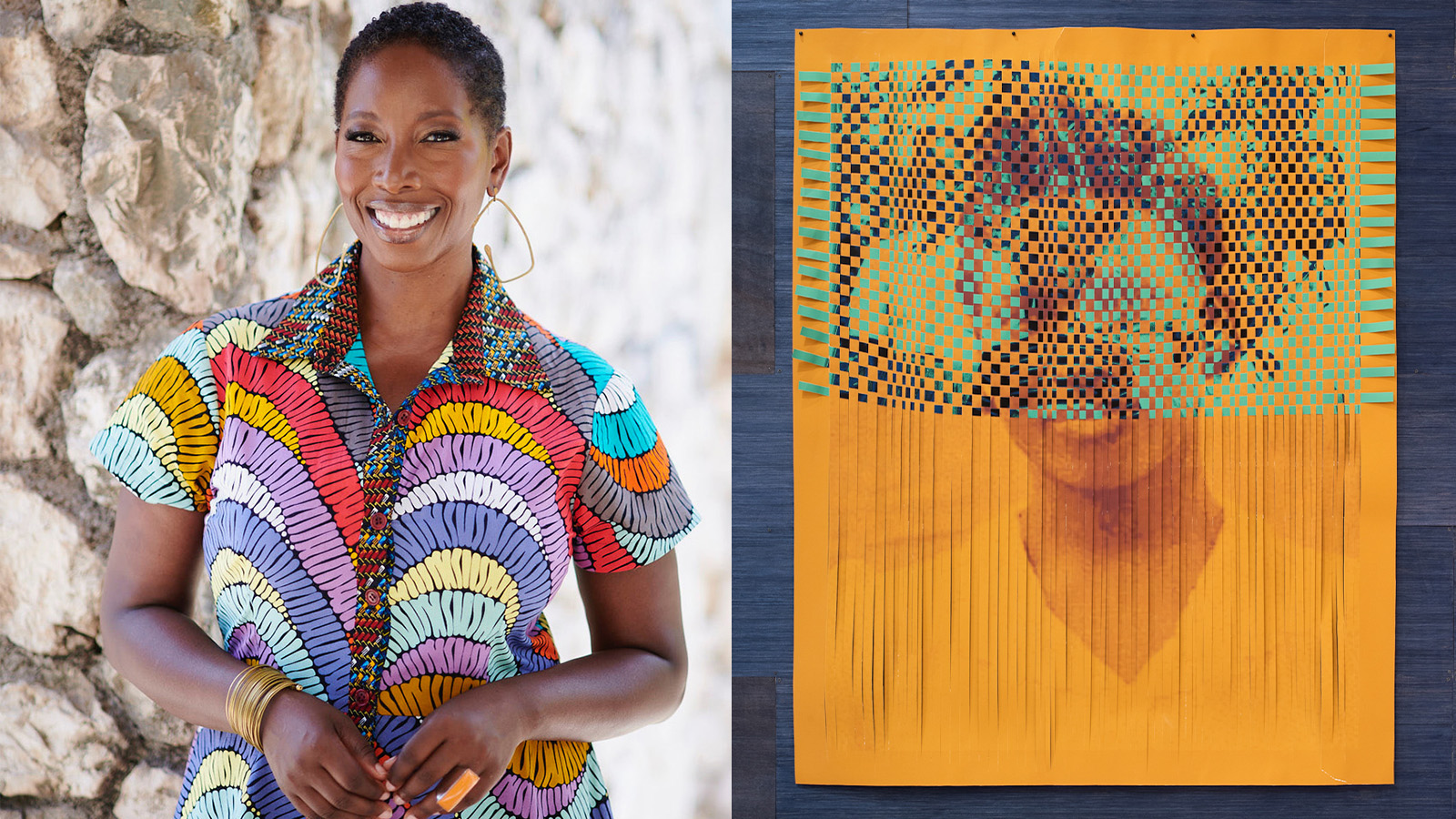
Multidisciplinary artists across the Caribbean diaspora are reclaiming their ancestral legacies endangered by centuries of colonialism. Malene Barnett’s publication Crafted Kinship: Inside the Creative Practice of Contemporary Black Caribbean Makers, released in the UK by Hachette/Artisan Books on 5 December, amplifies 60 pioneering voices as they honour their heritage, define their identity and envision futures where cultural birthrights are valued. Below, Barnett, plus four additional artists from the book, share insights into their works’ significance.
Crafted Kinship: Inside the Creative Practice of Contemporary Black Caribbean Makers
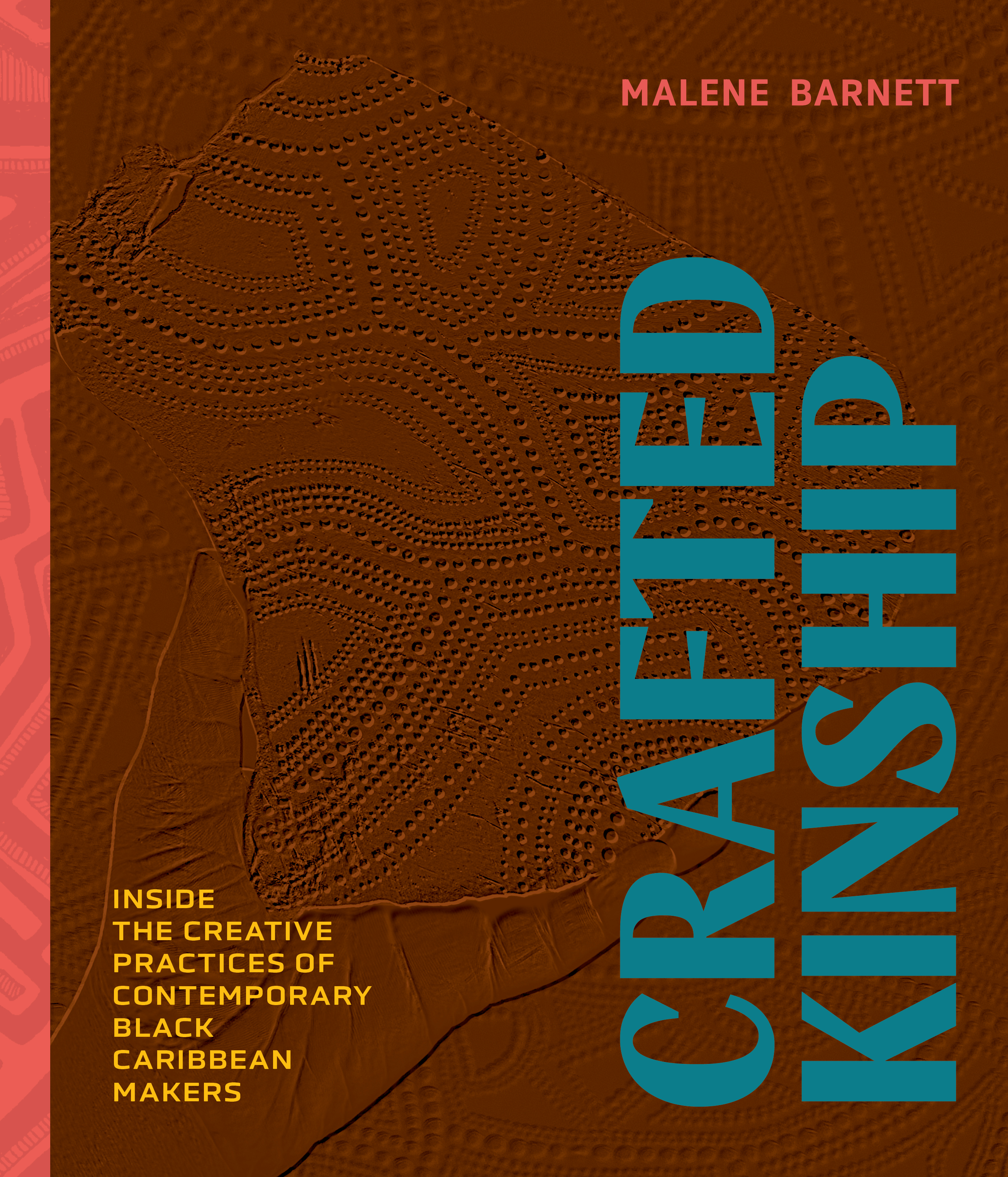
Crafted Kinship: Inside the Creative Practice of Contemporary Black Caribbean Makers cover
A mixed-media artist and textile designer with roots in St. Vincent and Jamaica, Brooklyn-based Barnett founded the Black Artists + Designers Guild and raises awareness around Caribbean makers and ceramic art traditions of the Black diaspora through exhibitions, talks, publications and partnerships with companies such as Kravet, Ruggable and Samsung.
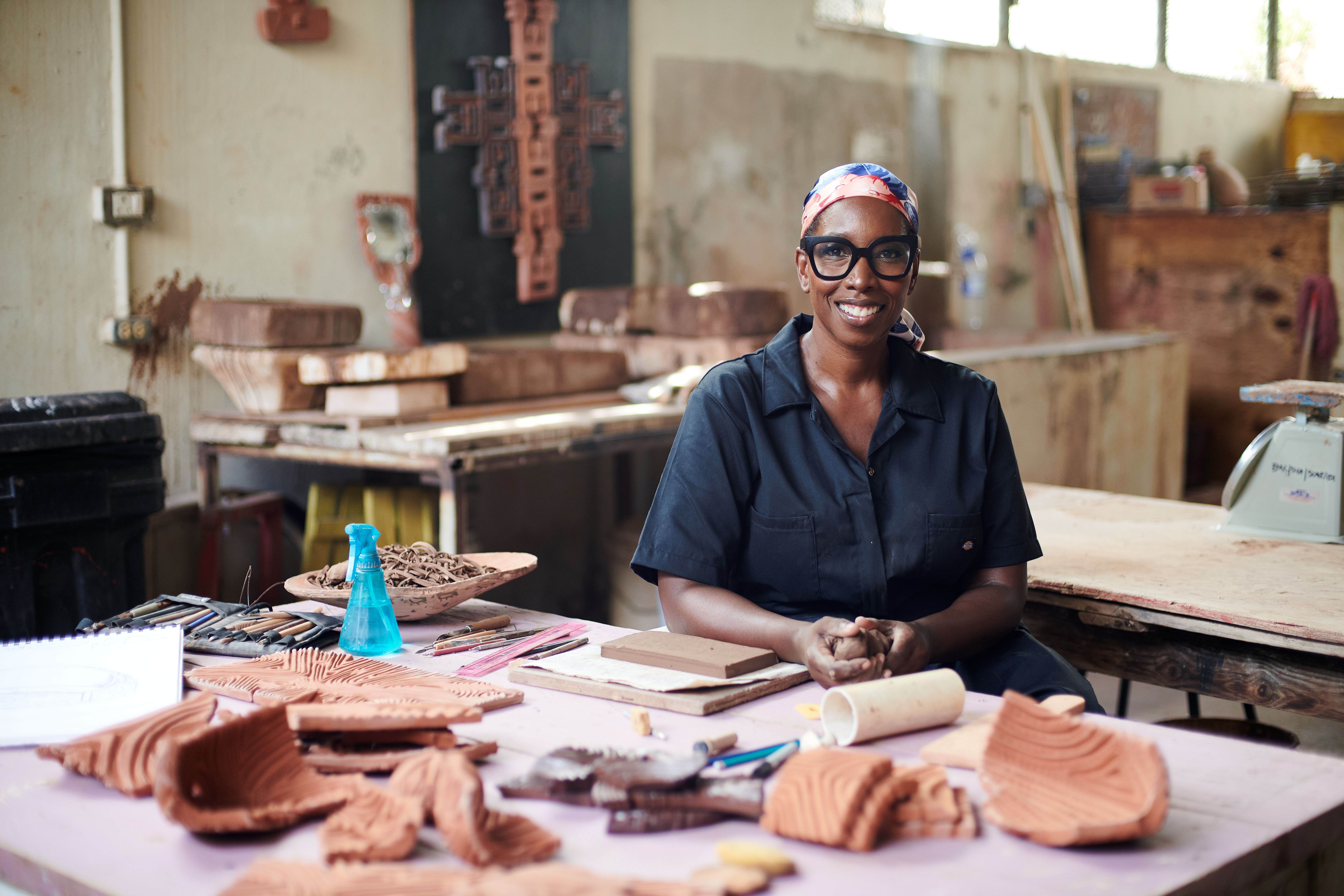
Malene Barnett in her studio
‘By finding new interpretations of traditional Caribbean art, I connect with ancestral foundations and expand their narratives to reflect contemporary Black experiences,’ Barnett says. ‘This allows me to explore themes of identity, migration and resilience, creating a living dialogue that preserves these traditions and advances them for future generations.’
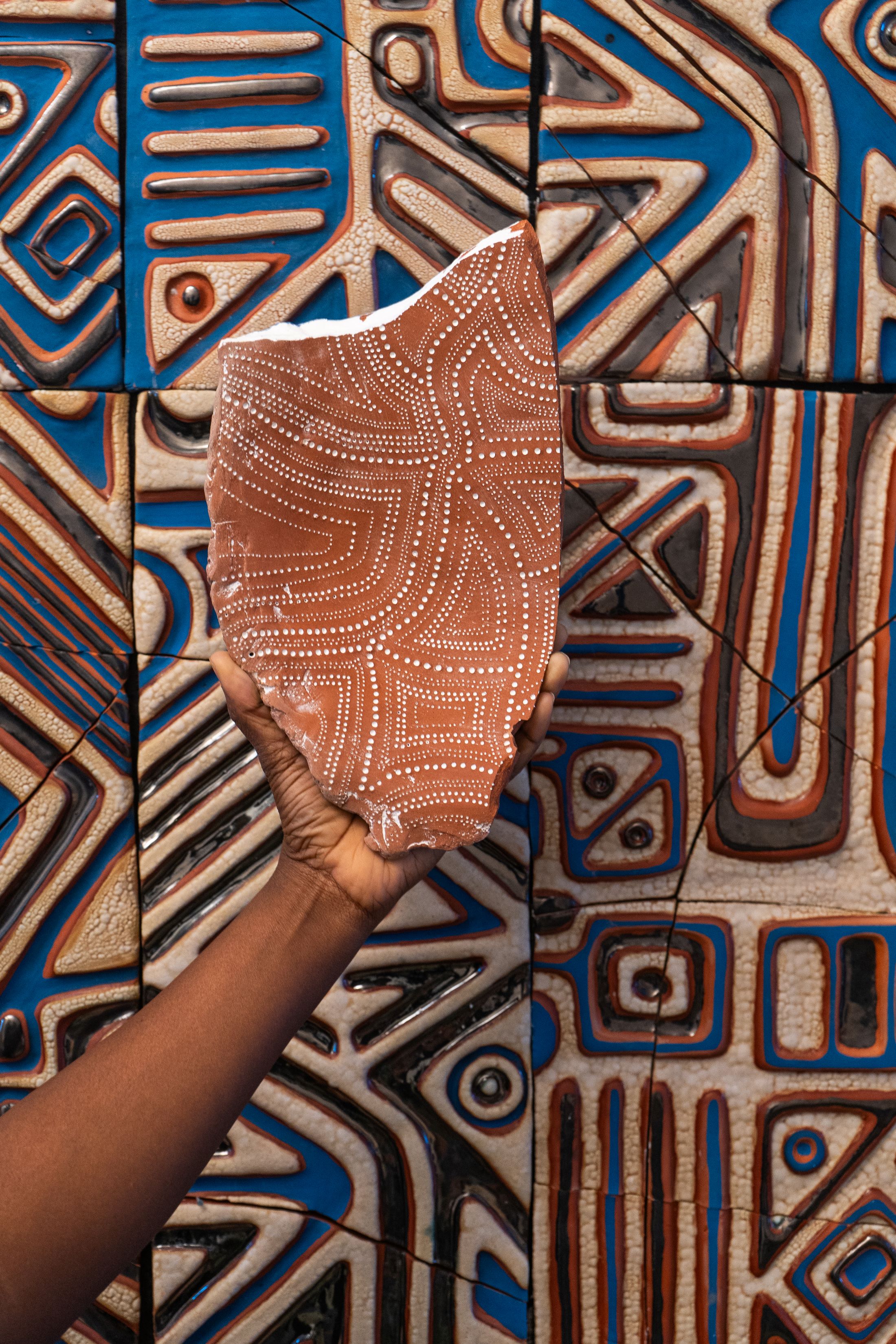
Ceramic fragment by Malene Barnett
New York City-based Bahamian visual artist Anina Major investigates the relationship between self and place with works that reclaim the significance of straw basketry through ceramics. She holds an MFA from Rhode Island School of Design, has received numerous awards and residencies, and has exhibited in The Bahamas, across the USA and in Europe. Her works are in the permanent collections of private and public institutions.
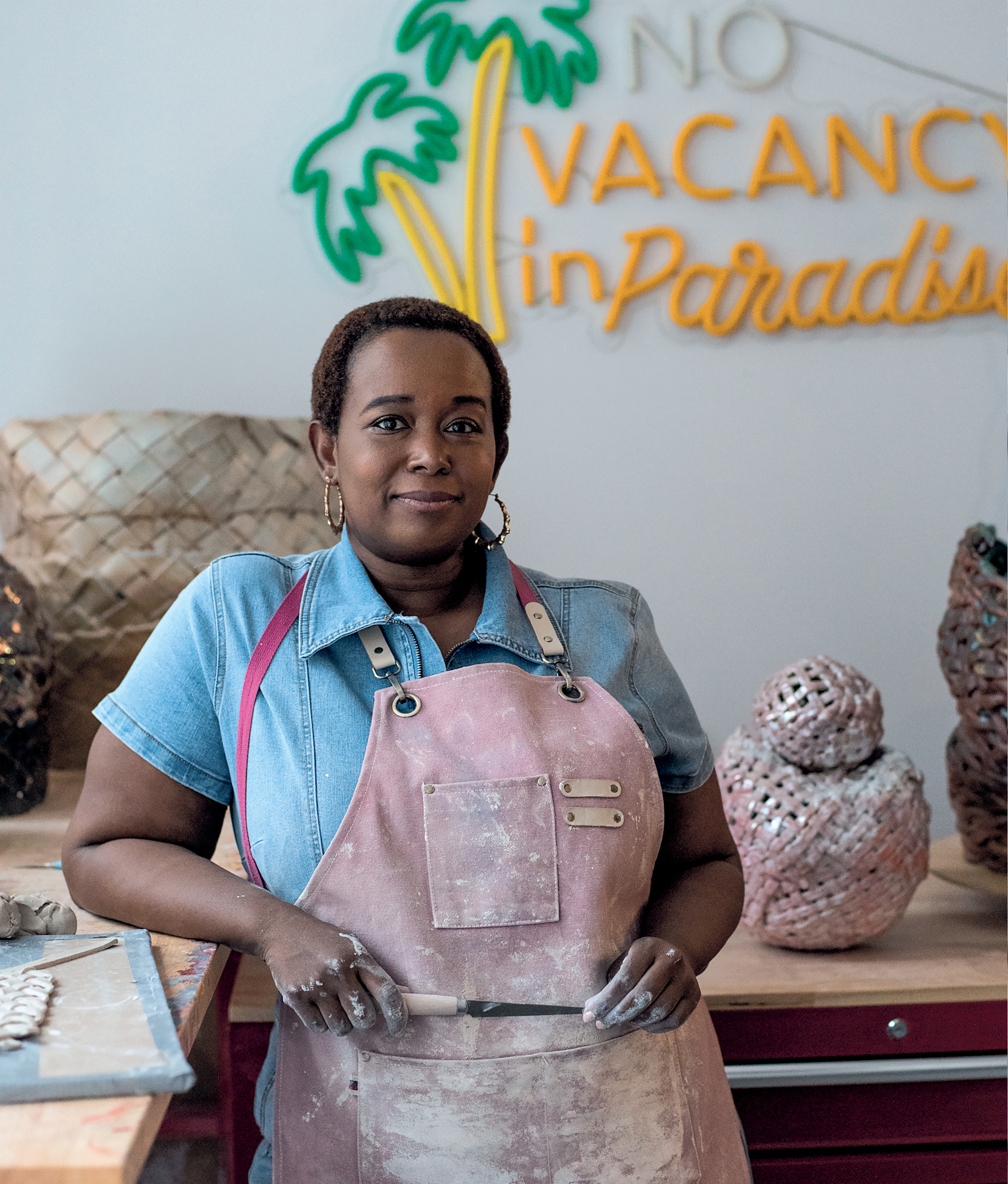
Anina Major in her studio. Excerpted from Crafted Kinship by Malene Barnett (Artisan Books). Copyright © 2024. Photographs by Amilcar Navarro
‘Cultural memory is our survival,’ explains Major. ‘Much of our understanding of Caribbean culture is from external perspectives. As artists, we are uniquely positioned to explore new interpretations, especially firsthand experiences that broaden our understanding of the region. This is particularly important when discussing traditions that face threats of cultural erasure.’
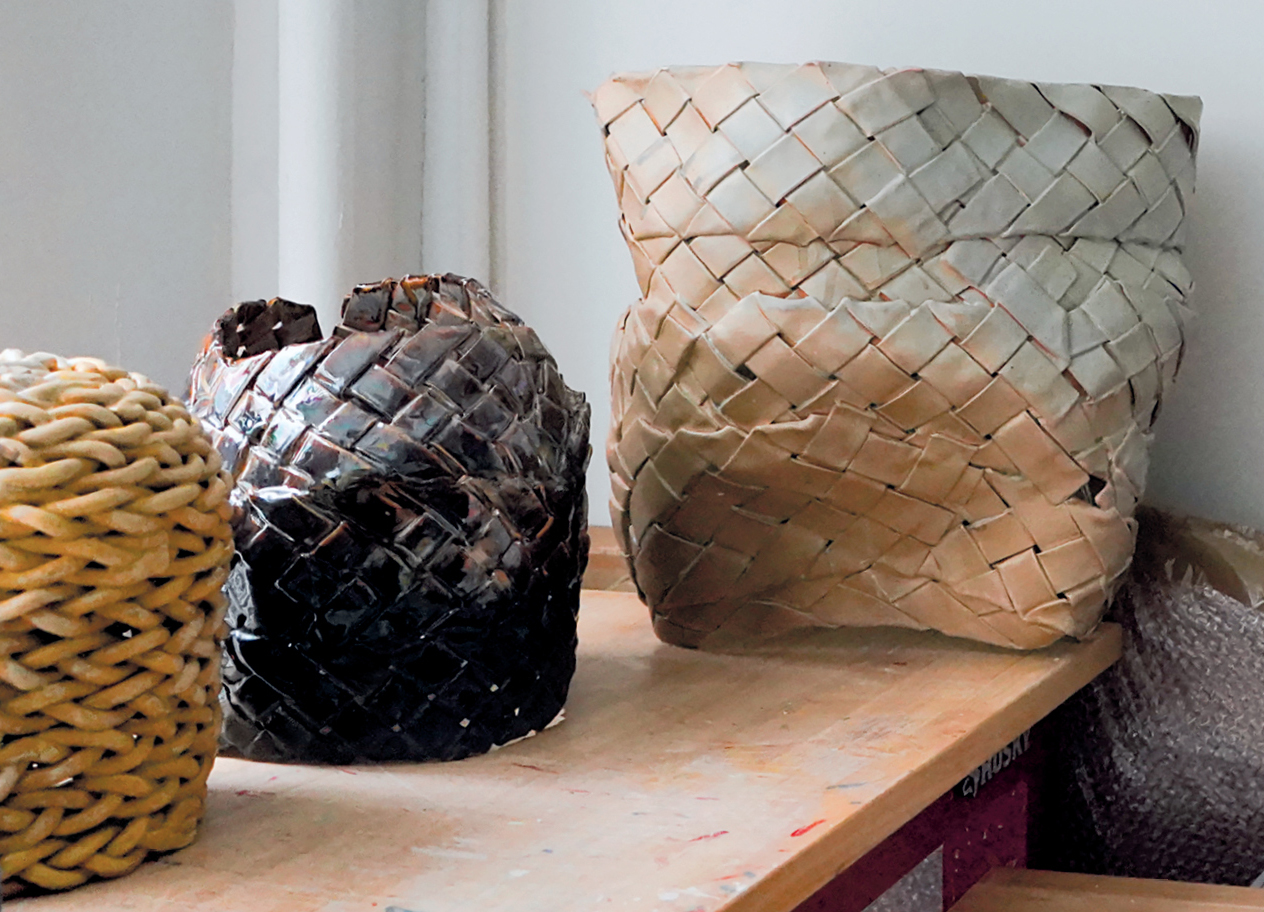
Anina Major's work. Excerpted from Crafted Kinship by Malene Barnett (Artisan Books). Copyright © 2024.
Sonya Clark’s Jamaican, Trinidadian, and Bajan heritage shapes her identity as a textile artist and professor who explores power, race and gender using meaningful materials like hair. During her childhood, she was taught to thread a needle by her Jamaican grandmother, Chummy. With 500+ global exhibitions over 30 years, the Amherst, Massachusetts-based artist adds to the ancestral archives through works that, using mediums such as hair, beads and combs, encourage viewers to claim freedoms and refuse injustices.
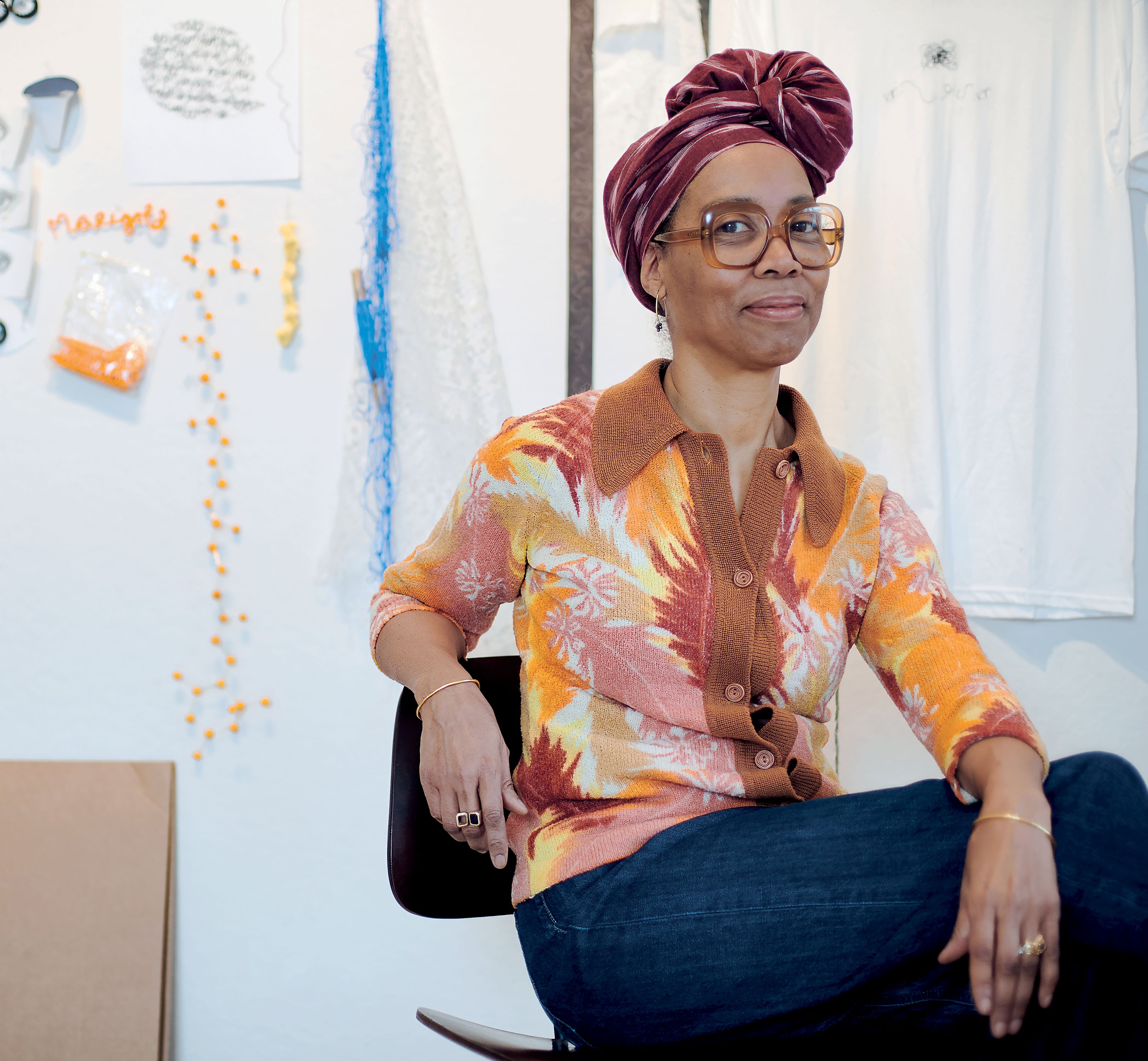
Sonya Clark portrait. Excerpted from Crafted Kinship by Malene Barnett (Artisan Books). Copyright © 2024.
‘We embody our ancestors in every fibre of our being and strand of our hair,’ says Clark. ‘As an artist invested in the crafts passed through my Afro-Caribbean roots, it is my responsibility to create new branches. As our roots deepen, our collective branches grow. We depend on our ancestry to expand our ingenuity.’
Wallpaper* Newsletter
Receive our daily digest of inspiration, escapism and design stories from around the world direct to your inbox.
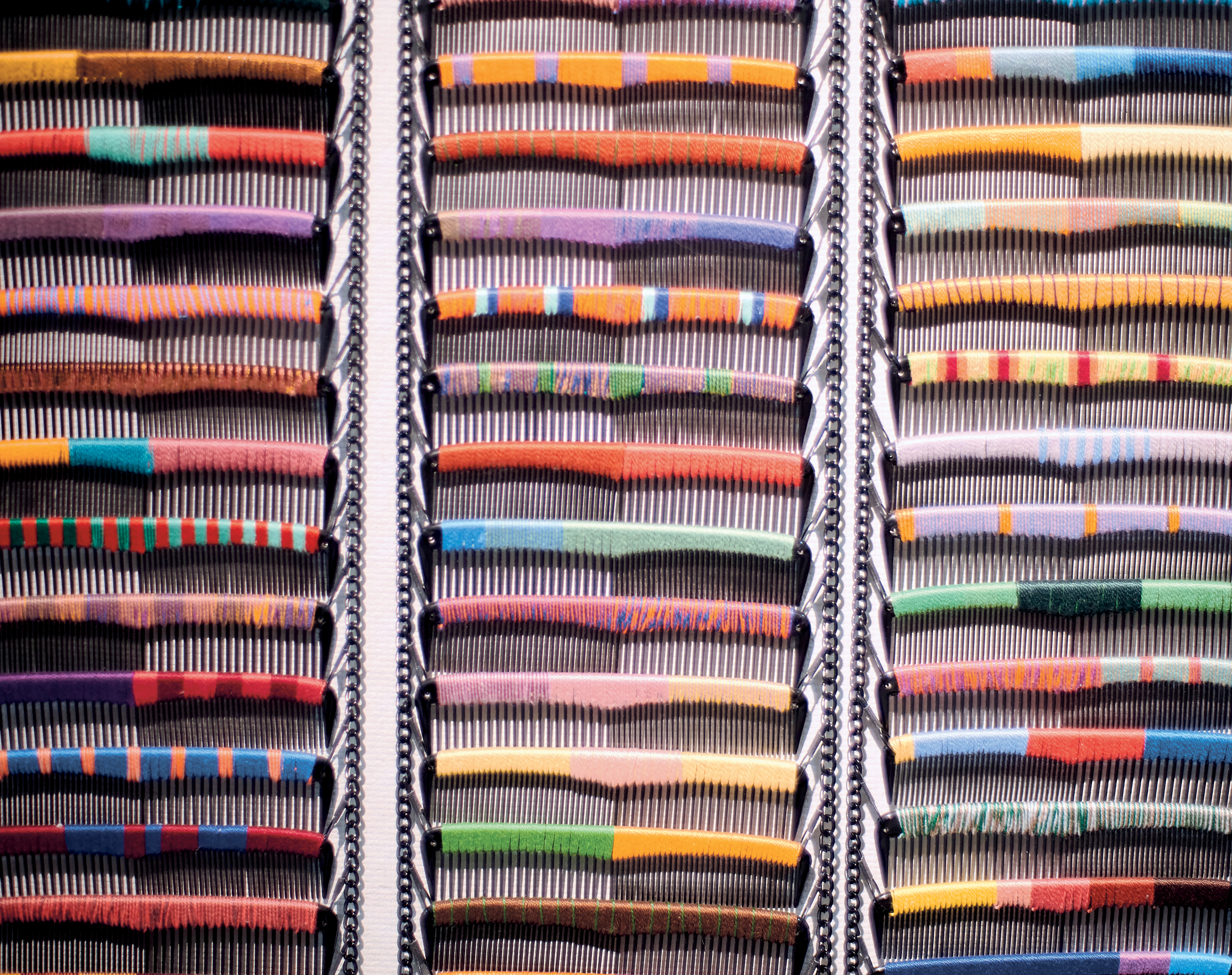
Sonya Clark's work. Excerpted from Crafted Kinship by Malene Barnett (Artisan Books). Copyright © 2024.
Morel Doucet, a Miami-based multidisciplinary artist and art educator from Haiti, provokes viewers to interrogate truth, reality and what lies beneath the surface. Through ceramics, illustrations and prints, he explores themes of climate gentrification, migration and displacement amongst Black communities in the African diaspora. Doucet has exhibited internationally and has works in prestigious collections such as the Pérez Art Museum Miami and those owned by Microsoft, Facebook and Royal Caribbean.
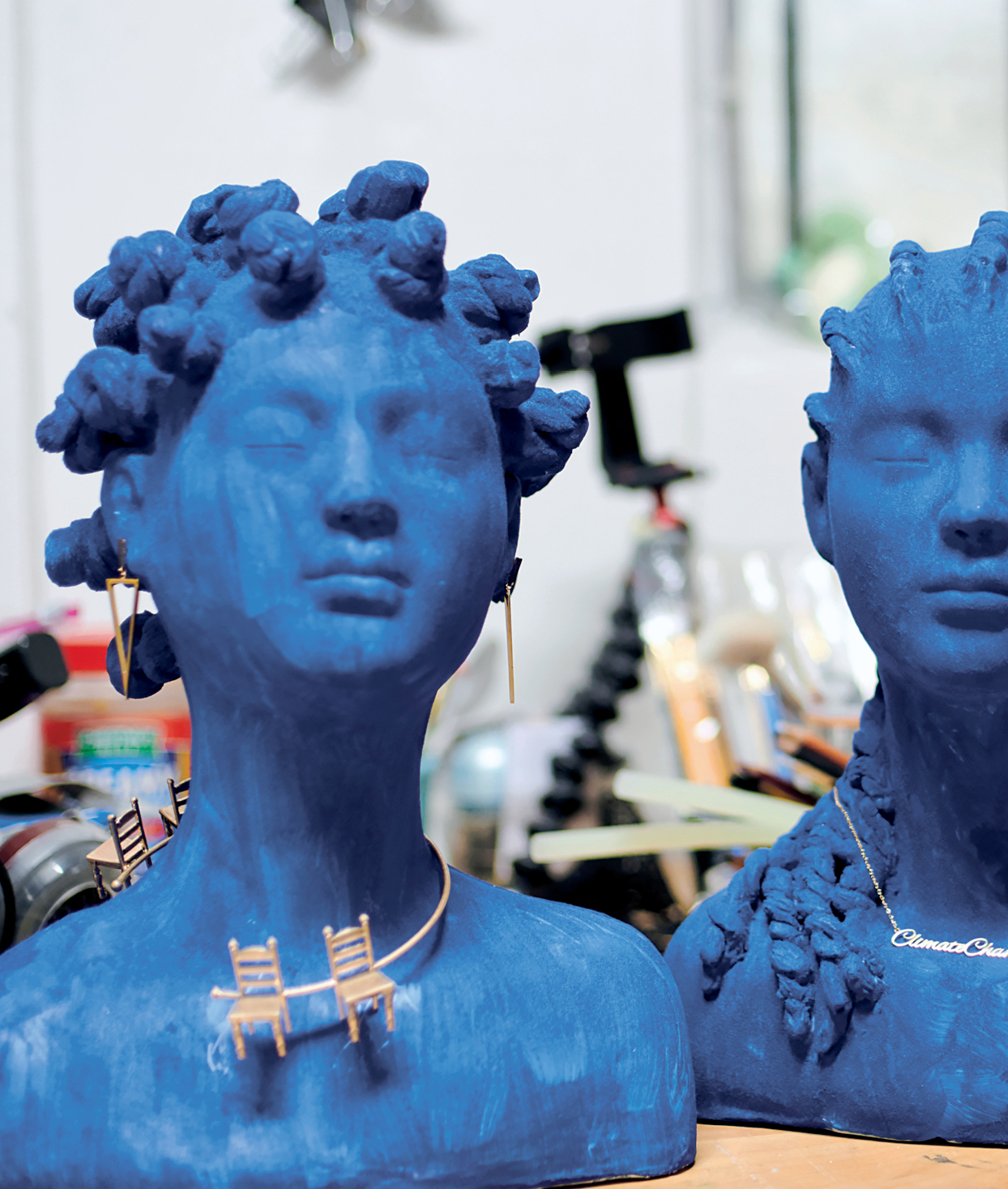
Morel Doucet's work. Excerpted from Crafted Kinship by Malene Barnett (Artisan Books). Copyright © 2024.
‘My works use traditional motifs and techniques to address contemporary themes, weaving threads of heritage and modernity to create dialogues resonating across generations,’ Doucet explains. ‘Challenging stereotypes and expanding narratives about Caribbean identity creates a more complex and inclusive understanding of our culture. Through innovation, traditional art forms become powerful tools for storytelling, education and advocacy, connecting historical struggles and triumphs with current global issues like climate change and social justice.’
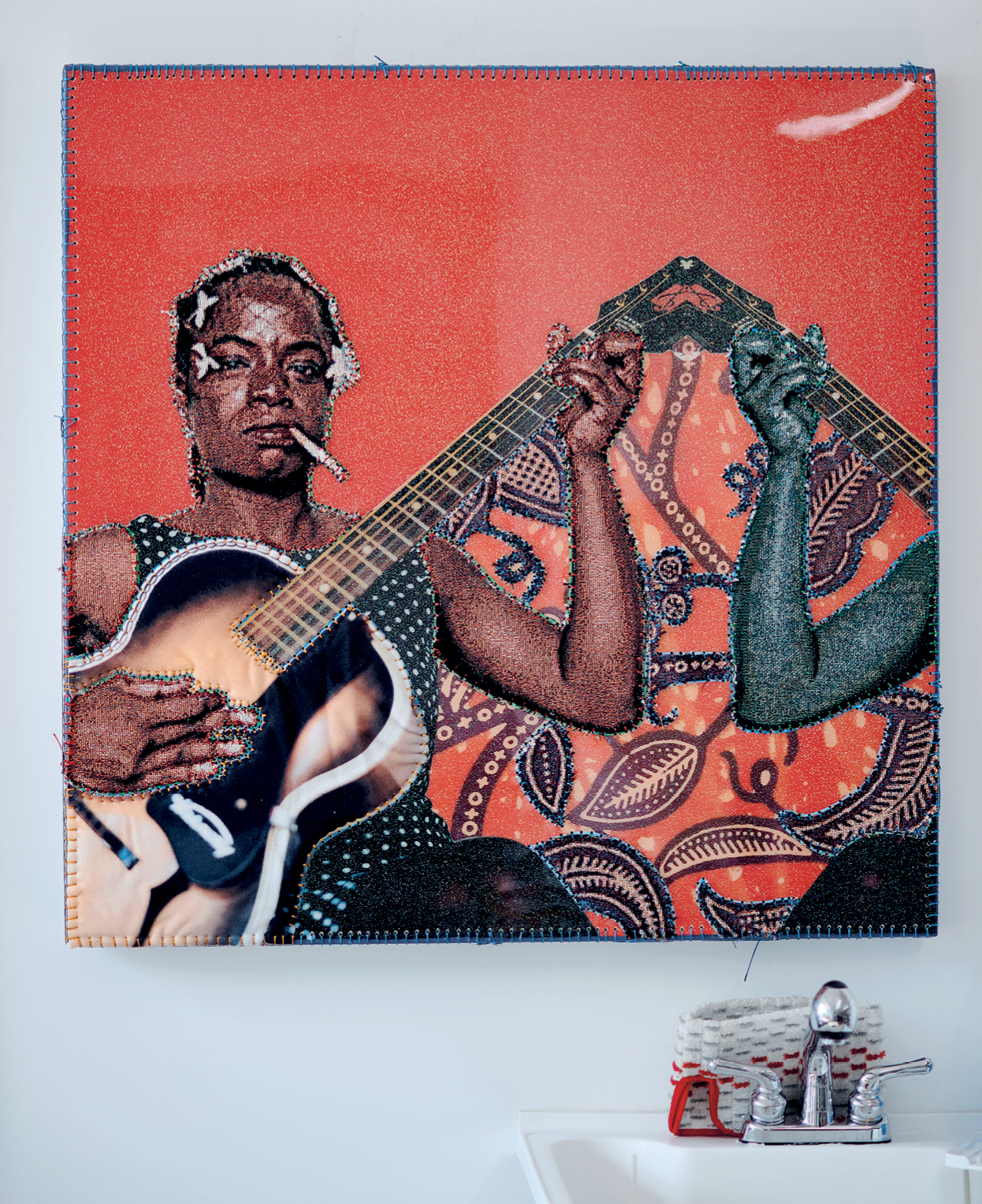
April Bey's textile pieces. Excerpted from Crafted Kinship by Malene Barnett (Artisan Books). Copyright © 2024.
Bahamian-American multidisciplinary artist April Bey lives in Los Angeles and explores themes of identity, race and cultural hybridity through Afrofuturism and pop culture. Exhibited internationally, her works celebrate Black joy, queer resilience and diasporic connections. Bey weaves personal history with global perspectives to envision a utopian world of empowerment and autonomy.
‘Caribbean culture is dynamic and ever evolving,’ says Bey. ‘Honouring and adapting ancestral practices to reflect modern experiences challenges the colonial narratives that commodified Caribbean traditions. By blending tradition with innovation, we celebrate the Caribbean as a living, forward-thinking cultural force rather than a static relic of the past.’
-
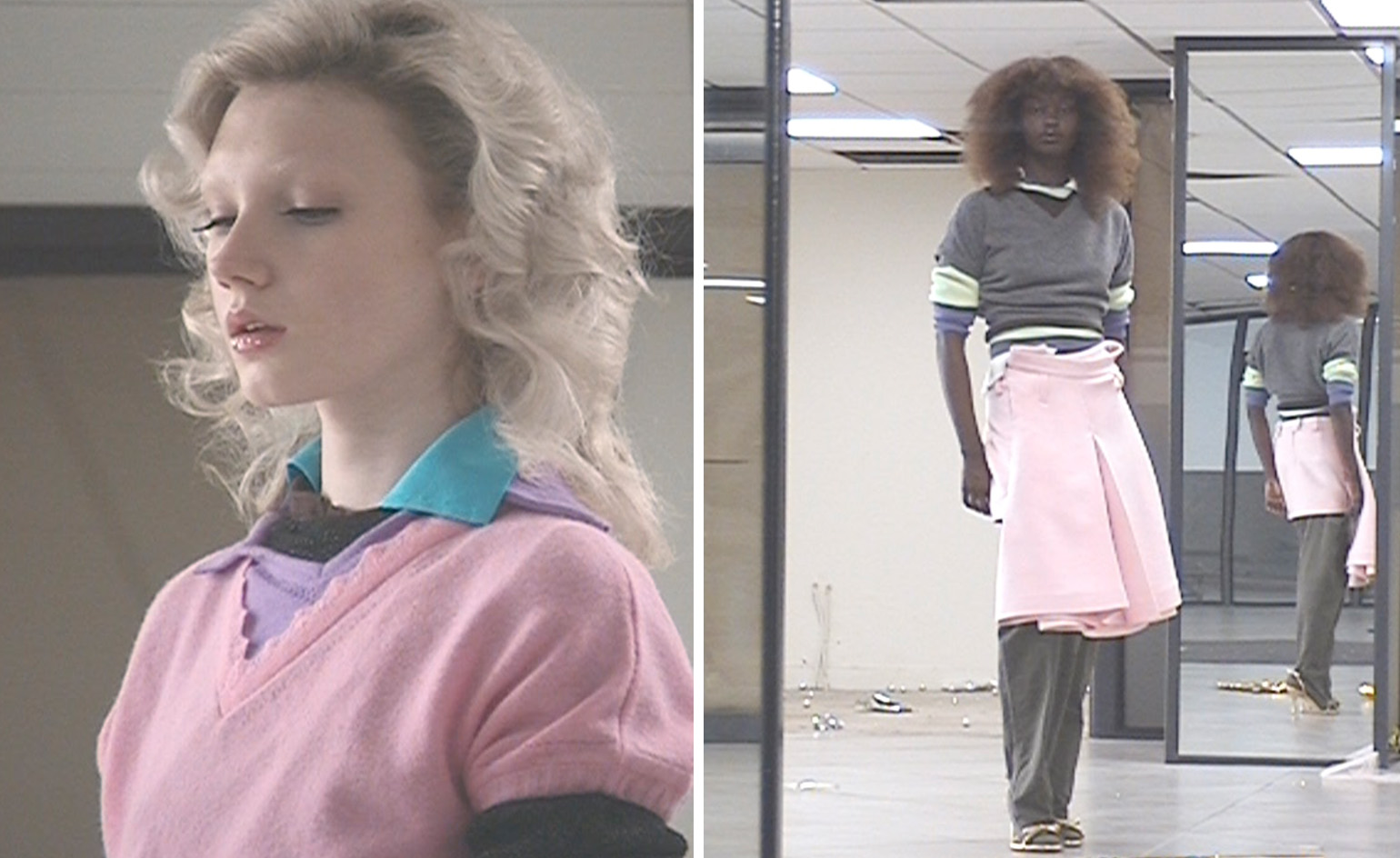 All-In is the Paris-based label making full-force fashion for main character dressing
All-In is the Paris-based label making full-force fashion for main character dressingPart of our monthly Uprising series, Wallpaper* meets Benjamin Barron and Bror August Vestbø of All-In, the LVMH Prize-nominated label which bases its collections on a riotous cast of characters – real and imagined
By Orla Brennan
-
 Maserati joins forces with Giorgetti for a turbo-charged relationship
Maserati joins forces with Giorgetti for a turbo-charged relationshipAnnouncing their marriage during Milan Design Week, the brands unveiled a collection, a car and a long term commitment
By Hugo Macdonald
-
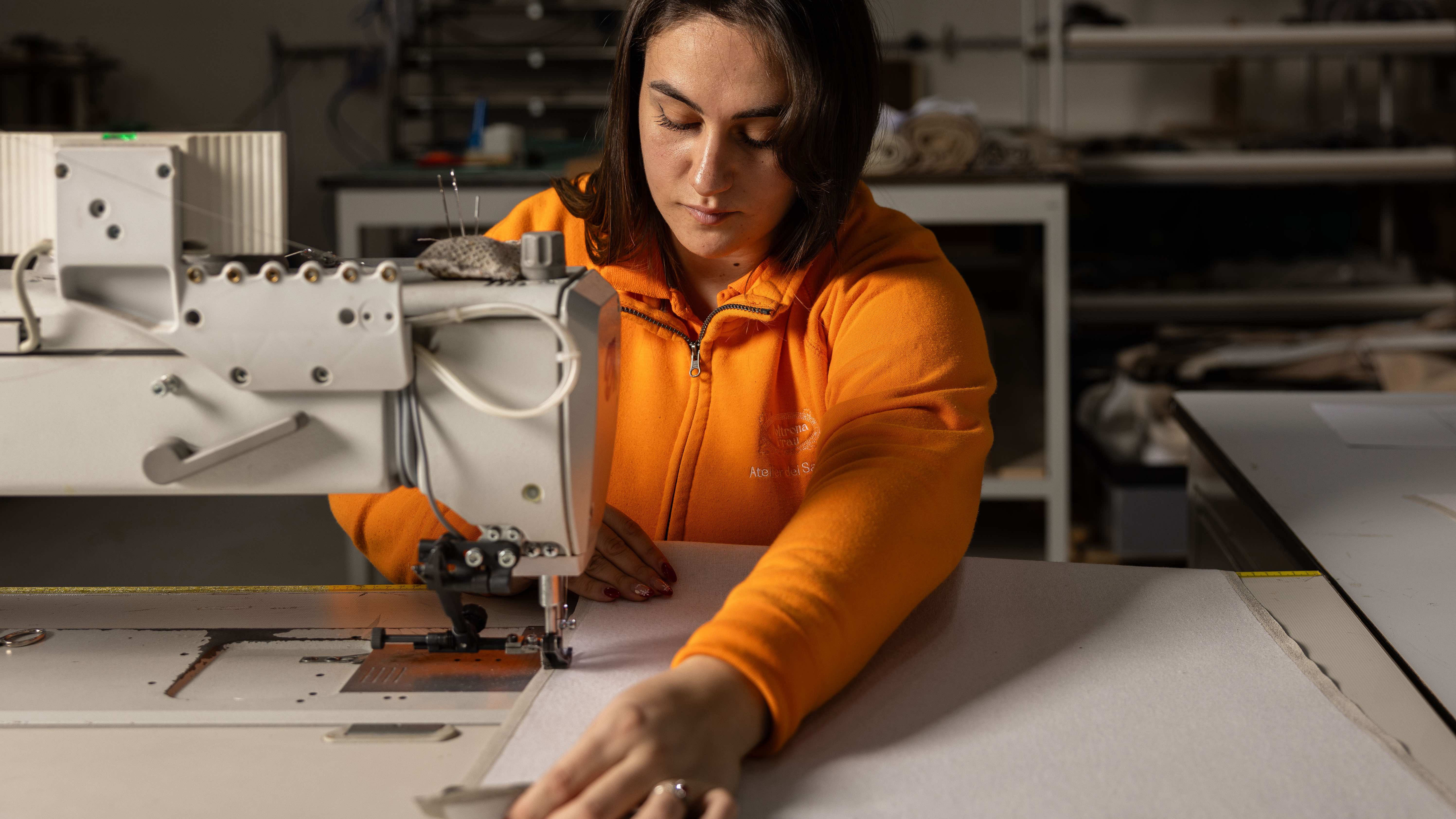 Through an innovative new training program, Poltrona Frau aims to safeguard Italian craft
Through an innovative new training program, Poltrona Frau aims to safeguard Italian craftThe heritage furniture manufacturer is training a new generation of leather artisans
By Cristina Kiran Piotti